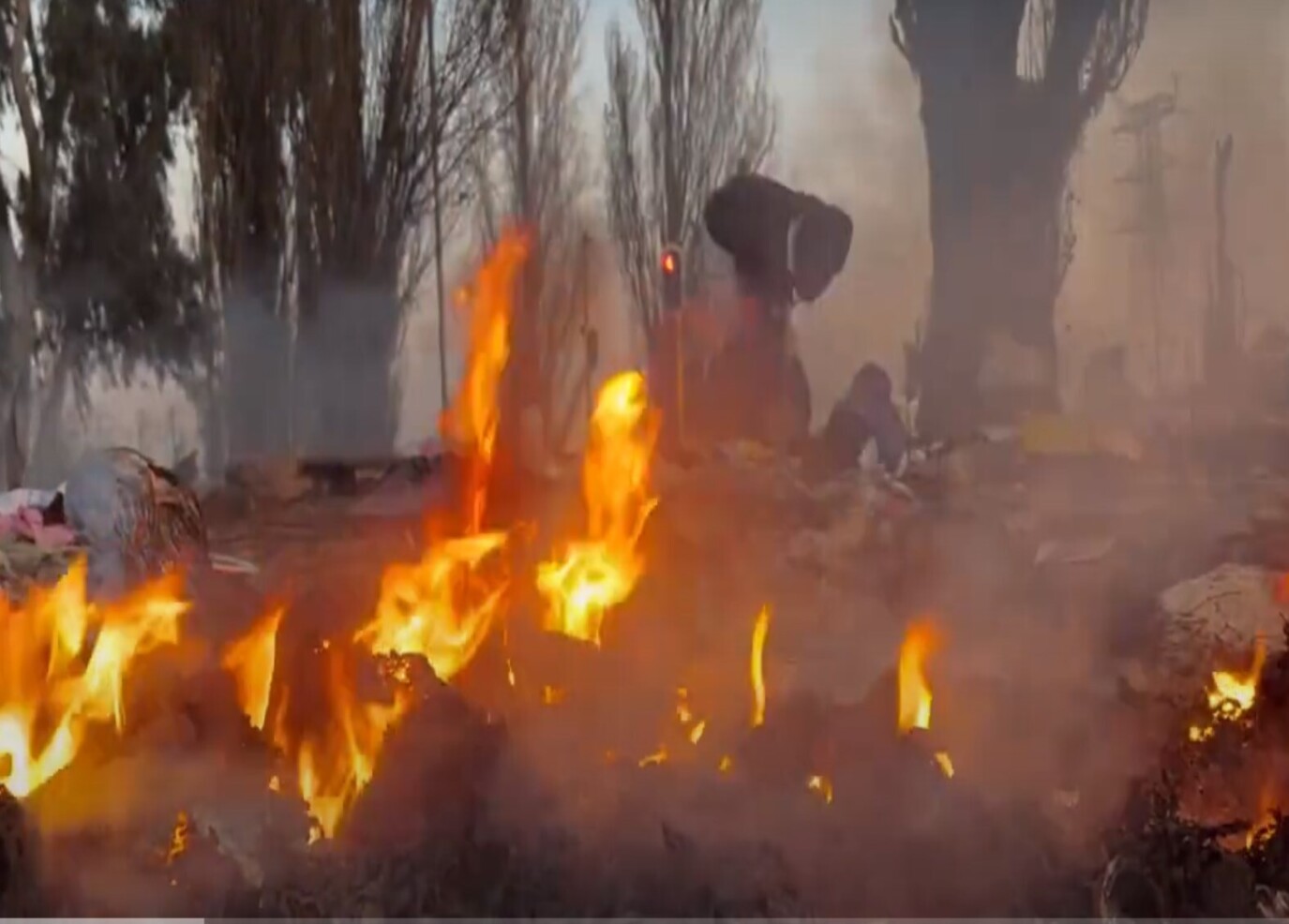Across India’s bustling cities and rural landscapes, a disturbing sight prevails – the billowing smoke from open waste burning. This seemingly mundane act carries a heavy burden, spewing toxic pollutants into the air, endangering public health, and choking the environment.
The Problem:
Open waste burning, often resorted to by individuals and communities due to inadequate waste management infrastructure, releases a cocktail of harmful chemicals:
- Particulate matter (PM): These fine particles penetrate deep into our lungs, causing respiratory illnesses, cardiovascular diseases, and even premature death.
- Volatile organic compounds (VOCs): These chemicals contribute to smog formation, ozone depletion, and various health problems.
- Dioxins and furans: These highly toxic and persistent pollutants can lead to cancer, birth defects, and immune system disorders.
The Impact:
The consequences of open waste burning are far-reaching:
- Public health crisis: Respiratory illnesses, especially among children and the elderly, are on the rise due to air pollution caused by open burning.
- Environmental degradation: The toxic pollutants released contribute to climate change, acid rain, and soil contamination.
- Economic losses: Healthcare costs, lost productivity, and damage to infrastructure due to air pollution create significant economic burdens.
Government Initiatives:
Both the central and state governments have recognized the urgency of tackling open waste burning and implemented various measures:
- Waste management infrastructure: Investing in waste collection, segregation, and treatment facilities to reduce reliance on open burning.
- Awareness campaigns: Educating citizens about the harmful effects of open burning and promoting responsible waste disposal practices.
- Stricter regulations: Enacting and enforcing laws prohibiting open burning and imposing penalties on violators.
- Incentives for sustainable alternatives: Providing subsidies and other incentives for composting, waste-to-energy projects, and other environmentally friendly waste management solutions.
- Technological solutions: Exploring and implementing technologies like pyrolysis and biomethanation to convert waste into usable resources.
What More Can Governments Do?
- Strengthen enforcement mechanisms: Ensure effective implementation of existing regulations with stricter penalties and improved monitoring.
- Promote decentralized waste management: Encourage local waste management initiatives and community-based solutions.
- Invest in research and development: Support research into innovative and cost-effective waste treatment technologies.
- Collaborate with NGOs and private companies: Foster partnerships to create comprehensive and sustainable waste management strategies.
- Improve public transportation: Reduce reliance on private vehicles, which contribute significantly to air pollution through emissions.
Citizens’ Role:
Individuals can play a crucial role in combating open waste burning:
- Segregate waste at source: Separate recyclable, biodegradable, and non-biodegradable waste to facilitate efficient disposal.
- Compost food waste and organic matter: Reduce waste generation and generate valuable compost for gardening.
- Choose alternatives to burning: Utilize designated waste disposal facilities or opt for recycling options.
- Report violations: Report instances of open burning to authorities and encourage others to do the same.
- Advocate for change: Raise awareness about the issue and urge local authorities to implement stricter regulations and support sustainable waste management initiatives.
Technological Interventions:
Emerging technologies offer promising solutions to address open waste burning:
- Waste-to-energy plants: Converting waste into energy sources like electricity or biogas reduces reliance on landfills and fossil fuels.
- Smart waste monitoring systems: Using sensors and real-time data to track waste levels and identify hotspots for intervention.
- Mobile waste collection apps: Connecting residents with waste collection services can improve waste management efficiency and reduce open burning.
- Automated sorting and recycling systems: Utilizing technology to automate waste sorting and recycling can significantly increase recycling rates and reduce waste dumped in landfills.
- Biodegradable waste management solutions: Developing and promoting bioplastics and other biodegradable alternatives can minimize waste generation and reliance on open burning.
The Road Ahead:
Open waste burning is a complex problem with no quick fix. It requires a combined effort from governments, communities, and individuals to implement effective policies, adopt sustainable practices, and embrace technological advancements. Remember, every conscious effort, every action taken towards responsible waste disposal, and every voice raised against open burning contributes to a cleaner and healthier future for all. Let’s join hands to build a world where waste is not a burden, but an opportunity, and where the air we breathe is a source of life, not a threat to it.

